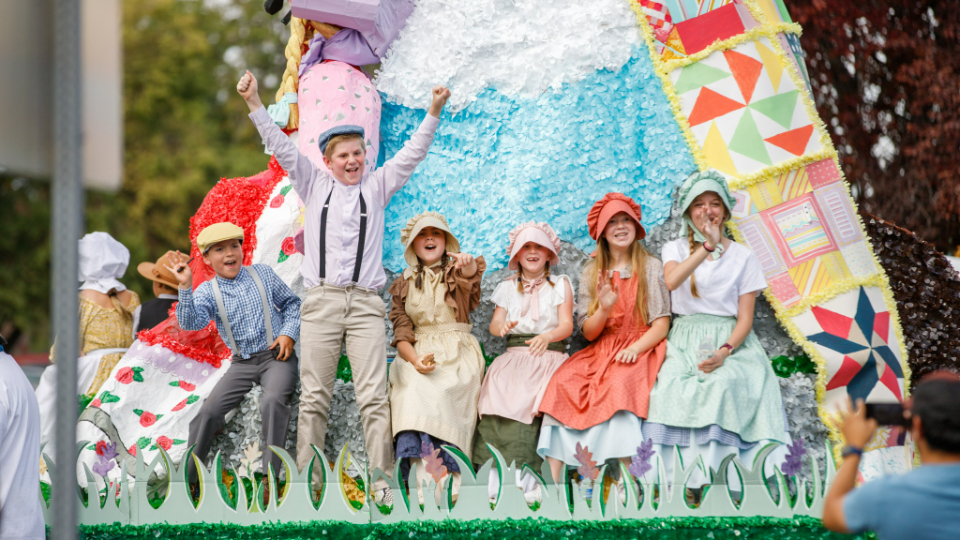Outgoing Relief Society General President Jean B. Bingham was grand marshal of Utah’s 2022 Days of ’47 Parade in Salt Lake City on Saturday, July 23. President Bingham was joined by her husband, Bruce, and other family members.
President Bingham was called as Relief Society General President in April 2017. Prior to this assignment, she was First Counselor in the Church’s Primary General Presidency. She was also on the general board of the Primary, the Church’s organization that guides more than a million children who are 11 and younger.
- Pioneer-Day-Parade-2022
- Pioneer-Day-Parade-2022
- Pioneer-Day-Parade-2022
- Pioneer-Day-Parade-2022
- Pioneer-Day-Parade-2022
- Pioneer-Day-Parade-2022
- Pioneer-Day-Parade-2022
- Pioneer-Day-Parade-2022
- Pioneer-Day-Parade-2022
- Pioneer-Day-Parade-2022
- Pioneer-Day-Parade-2022
- Pioneer-Day-Parade-2022
- Pioneer-Day-Parade-2022
- Pioneer-Day-Parade-2022
- Pioneer-Day-Parade-2022
- Pioneer-Day-Parade-2022
- Pioneer-Day-Parade-2022
- Pioneer-Day-Parade-2022
- Pioneer-Day-Parade-2022
- Pioneer-Day-Parade-2022
- Pioneer-Day-Parade-2022
| Temple Square is always beautiful in the springtime. Gardeners work to prepare the ground for General Conference. © 2012 Intellectual Reserve, Inc. All rights reserved. | 1 / 2 |
President Bingham has two daughters and several grandchildren. While her children were in their later school years, she returned to college. She received a bachelor’s degree and master’s degree in teaching from National Louis University in Illinois. She also received associate degrees from Brigham Young University and Elgin Community College.
Sister Camille N. Johnson will become the Church of Jesus Christ’s 18th Relief Society General President on August 1, 2022.
A Brief History of Pioneer Day
Pioneer Day celebrates the Mormon pioneers who entered the valley in July 1847. Between 1847 and 1868, when the transcontinental railroad neared completion, some 60,000 to 70,000 Latter-day Saints migrated from the United States, Canada and Europe across the North American Great Plains to Utah and the surrounding regions.

Pioneer-Day-Parade-2022
Floats are a part of the Days of ’47 Parade. The annual event commemorates the arrival of Latter-day Saints in Salt Lake Valley in 1847. 2022 by Intellectual Reserve, Inc. All rights reserved.Before these migrants arrived, the central Utah region was inhabited by several communities of Uintah, Timpanogots, Sanpits, Pahvant, and Moanunts peoples. These groups collectively identified themselves as Nuche (“the People”). As early as the 1600s, Spanish missionaries referred to Nuche bands as “Yutas.” By the early 1800s, English speakers variously rendered the Spanish term as “Utaws,” “Yutas,” “Eutaw,” “Eutahs,” “Utes,” and “Utahn.” As with other place names thought to have a Native American origin, United States government officials borrowed “Utah” in naming the territory in 1850. (Read more in this topic page about Utah.)